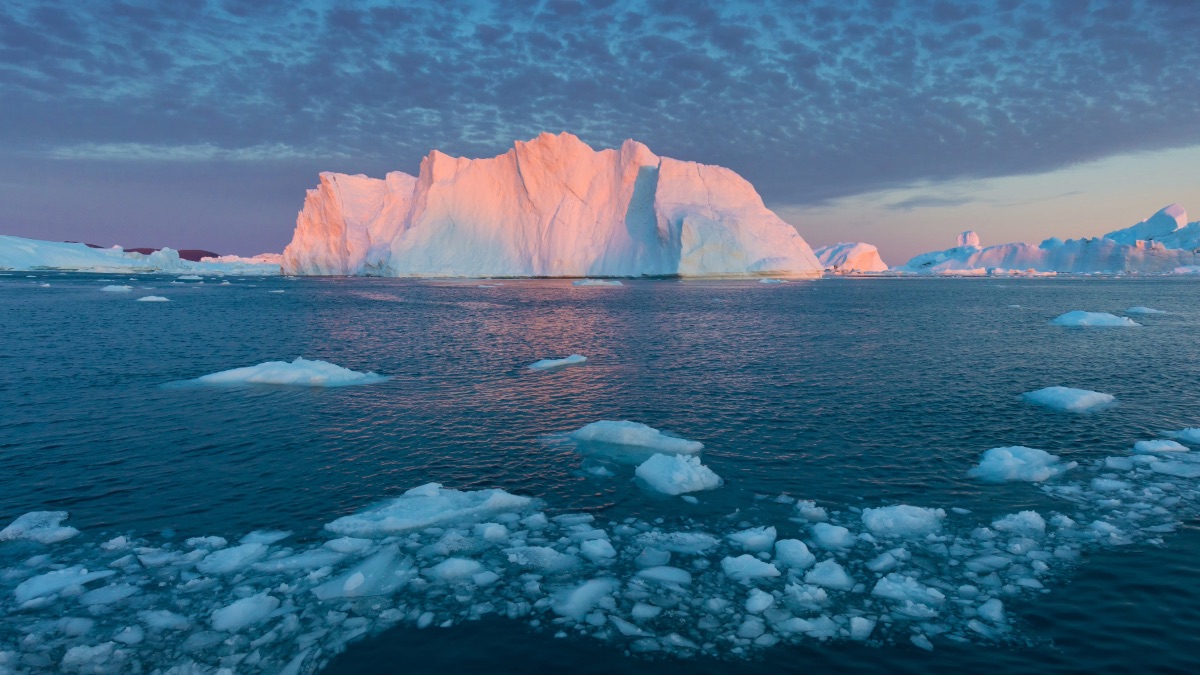
Across polar expeditions, postdoctoral projects, and student internships, MEOPAR is fostering collaboration, empowering the next generation and breaking down silos in oceans.
by Eduardo Camara
Fostering Collaboration in Ocean Research
From Canada’s northern coastlines to the icy waters of Antarctica, the Marine Environmental Observation, Prediction and Response Network (MEOPAR) is helping Canadian researchers lead the charge in ocean science. By connecting universities, government agencies, and international partners, MEOPAR ensures both established scientists and emerging researchers can make an impact.
The record-setting Canadian Antarctic Research Expedition aboard the HMCS Margaret Brooke is a powerful example. Coordinated with support from MEOPAR, the mission brought together scientists from across Canada and multiple federal departments. Dr. Brent Else of the University of Calgary, also MEOPAR’s Scientific Director, used the opportunity to compare Arctic and Antarctic carbon sinks, building on his innovative work on how polar seas absorb carbon dioxide. Alongside him and other researchers, Dr. Thomas James of Natural Resources Canada studied glacial and sea-level changes, gathering critical samples that will inform Canada’s long-term climate resilience strategies.
Empowering the Next Generation of Ocean Research
While such expeditions push the boundaries of discovery, MEOPAR is equally focused on supporting the next generation of ocean leaders. Through its Postdoctoral Fellowship (PDF) Awards, MEOPAR funds early-career researchers tackling challenges in Arctic fisheries, coastal erosion, ocean education, and sea ice dynamics. These fellowships not only advance national priorities but also give emerging scientists the resources and mentorship needed to thrive.
MEOPAR’s commitment to collaborative ocean research doesn’t stop at Canadian borders. With the CABIOS internship program, MEOPAR connects students to international research opportunities in the Caribbean. These hands-on experiences help students expand their skills, contribute to collaborative projects, and strengthen international partnerships that advance global ocean knowledge.
Breaking Down Silos in Oceans
At the national level, MEOPAR is also helping break down silos within the ocean space. At the H2O conference, MEOPAR highlighted its role in connecting government, academia, and industry to tackle ocean challenges together. By breaking down silos, the organization ensures Canadian ocean science remains collaborative, inclusive, and impactful.
Together, these initiatives illustrate MEOPAR’s unique role in Canada’s ocean research ecosystem: supporting field-defining expeditions, opening international doors for students, and building bridges across institutions and sectors. Across oceans and ice, MEOPAR is helping Canada’s ocean science community grow stronger, more connected, and better equipped to meet the challenges of a changing ocean.


